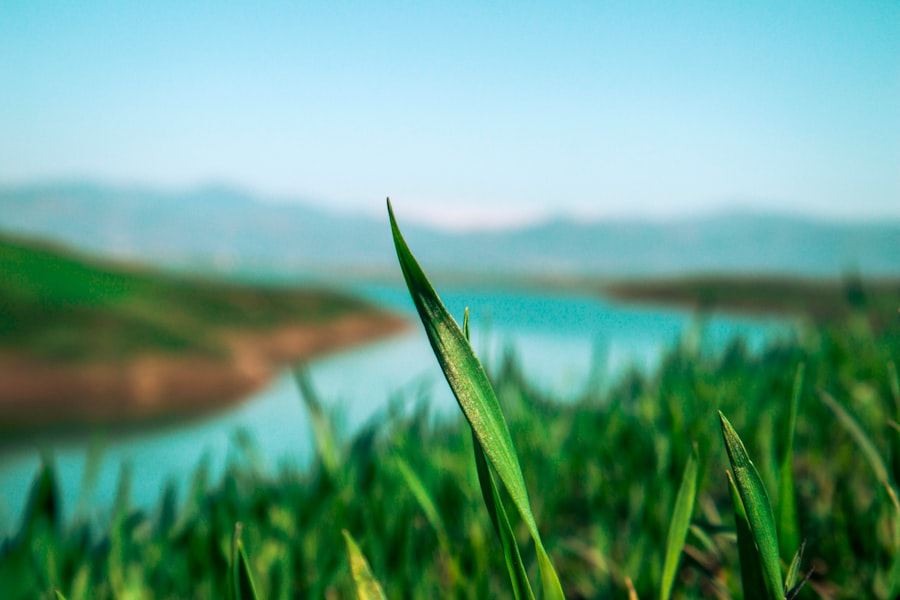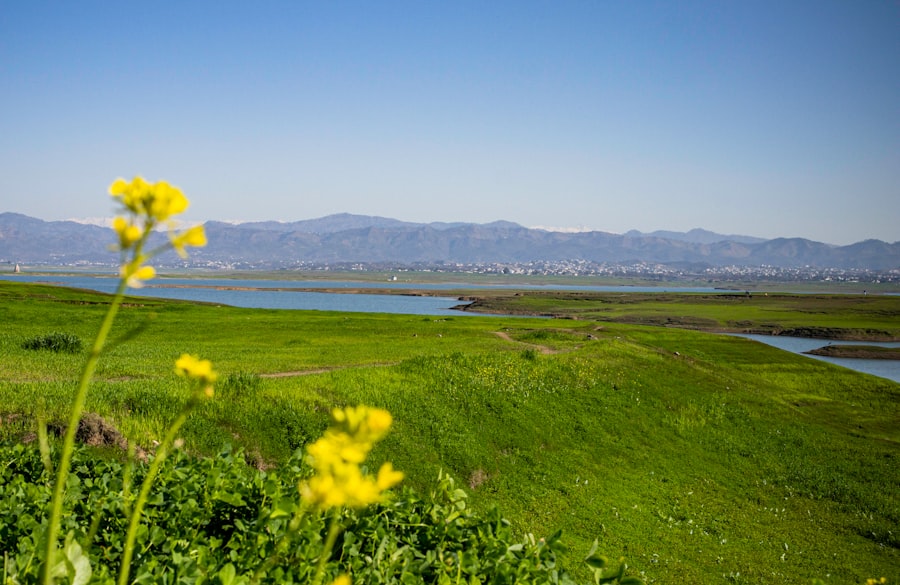Heat stress in chickens is a significant concern for poultry farmers due to its detrimental effects on flock health and productivity. Chickens exposed to high temperatures for extended periods may exhibit symptoms such as panting, lethargy, decreased egg production, and in severe cases, death. Poultry farmers must understand these risks to implement preventive measures effectively.
Chickens are particularly vulnerable to heat stress because they lack sweat glands and rely on panting and wing-spreading to regulate body temperature. Factors that increase susceptibility include darker feather coloration and higher body weight. Identifying these risk factors helps farmers protect more vulnerable birds within their flocks.
Heat stress also impacts farm productivity and profitability. Affected chickens experience decreased feed intake, leading to reduced growth rates and egg production. In extreme cases, heat stress can increase mortality rates among the flock.
These issues result in financial losses for farmers and diminished poultry product quality. Understanding the risks associated with heat stress enables farmers to implement mitigation strategies, safeguarding both the health of their chickens and the overall productivity of their operations.
Table of Contents
- 1 Providing Ample Shade and Ventilation
- 2 Offering Cool Treats and Fresh Water
- 3 Creating Cooling Stations and Dust Baths
- 4 Adjusting Feeding and Exercise Routines
- 5 Monitoring and Managing Heat Stress Symptoms
- 6 Consulting with a Veterinarian for Additional Support
- 7 FAQs
- 7.1 What are some signs that my chickens are overheating in the summer?
- 7.2 How can I keep my chickens cool in the summer?
- 7.3 What are some tips for providing shade for my chickens in the summer?
- 7.4 How often should I change my chickens’ water in the summer?
- 7.5 Are there specific breeds of chickens that are better suited for hot climates?
Key Takeaways
- Heat stress in chickens can lead to decreased egg production, poor growth, and even death
- Providing ample shade and ventilation is crucial in preventing heat stress in chickens
- Offering cool treats and fresh water can help chickens stay hydrated and cool during hot weather
- Creating cooling stations and dust baths can provide chickens with relief from heat stress
- Adjusting feeding and exercise routines can help chickens cope with high temperatures
- Monitoring and managing heat stress symptoms is important for the overall health of chickens
- Consulting with a veterinarian for additional support can help in preventing and managing heat stress in chickens
Providing Ample Shade and Ventilation
Ensuring Proper Ventilation and Shade
One of the most effective ways to prevent heat stress in chickens is by providing ample shade and ventilation in their living environment. This can be achieved by ensuring that the chicken coop or housing area is well-ventilated and has adequate shade throughout the day.
Additional Cooling Methods
Farmers can install fans or misting systems to help cool the air and reduce the temperature inside the coop. Additionally, providing natural shade from trees or other structures can help create a cooler environment for the chickens to seek refuge from the heat.
Monitoring and Adjusting the Environment
It’s important to monitor the temperature inside the coop regularly and make adjustments as needed to ensure that it remains within a comfortable range for the chickens. Furthermore, farmers can also consider using reflective materials on the roof of the coop to reduce heat absorption and keep the interior cooler.
Creating a Comfortable and Productive Environment
This can help create a more comfortable living environment for the chickens during hot weather. By providing ample shade and ventilation, farmers can help reduce the risk of heat stress in their flocks and create a more comfortable and productive living environment for their chickens.
Offering Cool Treats and Fresh Water

In addition to providing shade and ventilation, offering cool treats and fresh water to chickens can help them stay hydrated and regulate their body temperature during hot weather. Farmers can provide frozen or chilled fruits and vegetables, such as watermelon or cucumbers, as treats for the chickens to enjoy. These cool treats not only provide hydration but also offer a refreshing snack that can help lower the chickens’ body temperature.
Additionally, ensuring that chickens have access to fresh, cool water at all times is essential for preventing heat stress. Farmers should regularly check water sources to ensure that they are clean and cool, and consider adding ice or using waterers with built-in cooling systems to keep the water temperature down. Moreover, farmers can also consider adding electrolytes or vitamins to the chickens’ water to help replenish any nutrients lost due to heat stress.
This can help support the overall health and well-being of the flock during periods of high temperatures. By offering cool treats and fresh water, farmers can help ensure that their chickens stay hydrated and comfortable, reducing the risk of heat stress and its associated symptoms.
Creating Cooling Stations and Dust Baths
Another effective strategy for preventing heat stress in chickens is to create cooling stations and dust baths within their living environment. Farmers can set up shallow containers filled with cool water for chickens to wade in or place dampened towels or cloths in strategic locations for them to rest on. These cooling stations provide chickens with a way to lower their body temperature and seek relief from the heat.
Additionally, providing access to dust baths filled with cool, dry soil or sand can help chickens regulate their body temperature and keep their feathers clean and healthy. Furthermore, farmers can also consider using sprinkler systems or misting stations in outdoor areas where chickens spend time during hot weather. This can help create a cooler microclimate and provide additional opportunities for chickens to cool off.
By creating cooling stations and dust baths, farmers can offer their chickens additional ways to stay comfortable and reduce the risk of heat stress.
Adjusting Feeding and Exercise Routines
During periods of high temperatures, it’s important for farmers to adjust their chickens’ feeding and exercise routines to help prevent heat stress. Feeding chickens during the cooler parts of the day, such as early morning or late evening, can help reduce heat production from digestion and minimize the impact of high temperatures on their metabolism. Additionally, farmers can consider offering smaller, more frequent meals to reduce the amount of heat generated during digestion.
Moreover, limiting strenuous physical activity during the hottest parts of the day can also help prevent heat stress in chickens. Farmers should encourage their chickens to rest in shaded areas and avoid unnecessary exertion during periods of high temperatures. By adjusting feeding and exercise routines, farmers can help minimize the risk of heat stress in their flocks and support their overall health and well-being.
Monitoring and Managing Heat Stress Symptoms

Recognizing the Symptoms
Common signs of heat stress in chickens include panting, lethargy, decreased egg production, reduced feed intake, and spreading wings away from the body. If any of these symptoms are observed, farmers should take immediate action to cool down the affected chickens.
Providing Relief and Care
Farmers should provide access to shade, cool water, and other cooling measures to alleviate heat stress symptoms. In severe cases, it may be necessary to isolate affected chickens from the rest of the flock and provide individualized care, such as offering electrolyte supplements, providing additional cooling measures, or seeking veterinary assistance if symptoms persist or worsen.
Proactive Management for Flock Well-being
By monitoring and managing heat stress symptoms proactively, farmers can help prevent further complications and ensure the well-being of their flocks during periods of high temperatures.
Consulting with a Veterinarian for Additional Support
In some cases, preventing and managing heat stress in chickens may require additional support from a veterinarian with experience in poultry health. Farmers should establish a relationship with a veterinarian who can provide guidance on best practices for preventing heat stress and offer support in managing any related health issues that may arise. Veterinarians can also provide valuable insights into identifying risk factors for heat stress within specific flocks and recommend tailored strategies for prevention.
Additionally, veterinarians can offer advice on nutritional supplements or medications that may help support chickens’ health during periods of high temperatures. They can also provide guidance on recognizing early signs of heat stress and implementing appropriate interventions to prevent further complications. By consulting with a veterinarian for additional support, farmers can access expert knowledge and resources to help protect their flocks from the risks of heat stress and ensure their overall well-being.
In conclusion, understanding the risks of heat stress in chickens is essential for poultry farmers to take proactive measures to prevent it. Providing ample shade and ventilation, offering cool treats and fresh water, creating cooling stations and dust baths, adjusting feeding and exercise routines, monitoring and managing heat stress symptoms, and consulting with a veterinarian for additional support are all crucial strategies for protecting chickens from the detrimental effects of heat stress. By implementing these measures, farmers can create a more comfortable living environment for their flocks during periods of high temperatures and support their overall health and productivity.
If you’re looking for ways to keep your chickens cool in the summer, you may also be interested in learning how to turn a shed into a chicken coop. This article from Poultry Wizard provides helpful tips and guidance on converting a shed into a comfortable and functional living space for your feathered friends. Check it out here.
FAQs
What are some signs that my chickens are overheating in the summer?
Some signs that your chickens may be overheating in the summer include panting, holding their wings away from their bodies, reduced egg production, and lethargy.
How can I keep my chickens cool in the summer?
You can keep your chickens cool in the summer by providing plenty of shade, ensuring they have access to fresh, cool water at all times, using fans or misters in the coop, and offering frozen treats like fruits and vegetables.
What are some tips for providing shade for my chickens in the summer?
You can provide shade for your chickens in the summer by using natural shade from trees or shrubs, setting up umbrellas or tarps in their outdoor area, and creating shaded areas within the coop using materials like straw bales or plywood.
How often should I change my chickens’ water in the summer?
You should change your chickens’ water at least once a day in the summer, and more frequently if the water becomes dirty or warm.
Are there specific breeds of chickens that are better suited for hot climates?
Yes, some breeds of chickens are better suited for hot climates, such as the Leghorn, Rhode Island Red, and Sussex. These breeds tend to have lighter colored feathers and are more heat-tolerant.
Meet Walter, the feathered-friend fanatic of Florida! Nestled in the sunshine state, Walter struts through life with his feathered companions, clucking his way to happiness. With a coop that’s fancier than a five-star hotel, he’s the Don Juan of the chicken world. When he’s not teaching his hens to do the cha-cha, you’ll find him in a heated debate with his prized rooster, Sir Clucks-a-Lot. Walter’s poultry passion is no yolk; he’s the sunny-side-up guy you never knew you needed in your flock of friends!







